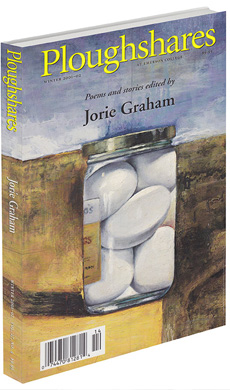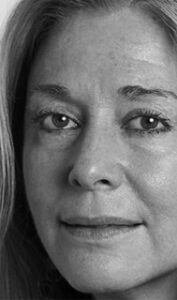rev. of Fields of Light: A Son Remembers His Heroic Father by Joseph Hurka
Fields of Light
A memoir by Joseph Hurka. Pushcart Press, $24.50 cloth. Reviewed by Fred Leebron.
In this debut book of nonfiction, American Joseph Hurka, son of a Czech anti-Communist resistance fighter, offers a generous, kind, and thoughtful memoir about his desire to inhabit his father Josef’s past, and thereby give both of them a form of new life. Laced with the history of the Czech Republic — a mosaic of oppression, resistance, rebellion, and survival —
Fields of Light: A Son Remembers His Heroic Father portrays the literal journey Hurka takes to the Czech Republic to trace his father’s footsteps, and the figurative journey that is every traveler’s voyage of discovery.
In part, the son knows what he will find: “in that land a mystery was waiting for me that had to do with a heaviness and sorrow and pride I had felt all of my life, and that I was reminded of each time my father was disappointed by another human being, by a lack of honesty or an outright deception, each time he slipped into the strange depressions he is capable of and I tried to cheer him up with my spirit, to convince him that not all of humanity was bad.”
Hurka arrives in May 1993, just a few years removed from the Velvet Revolution that saw the ascendancy of the dissident writer Václav Havel to the presidency of the Republic, and the American is greeted by Mira, his father’s seventy-one-year-old sister. Through her and the Czechs she introduces him to, he learns more about his father’s rebellious past, stories of a boy who runs errands for members of the Nazi resistance and later of a young air force officer who tries to ignore the rising Communist oppression around him, stories in which “there is a clear, steady thread of self-generated trouble running through his early life.” These culminate in Josef Hurka’s ill-fated trip at the age of twenty-three to see a former girlfriend, which leads to misinformed charges of being both a traitor and spy. The elder Hurka endures six Communist prisons, and when he is released, he turns wholeheartedly to working in the resistance effort.
Throughout the narrative, the younger Hurka occupies his father’s point of view intellectually, emotionally, and sensorially. His evocation is lyric and deft: “The mill was a smudge of white in that early morning hour, and the wooden bridge arched over the icy water. . . . Josef could smell gasoline: there, over the next ridge, on a small road, waited a long black limousine driven by an American operative.” At times, Hurka even interjects his own future presence, and the result is both subtly humorous and resonant: “He carried two pills, apparently standard issue: one to keep awake, another cyanide. He disposed of both of them after a while, he joked with me once when I was a teenager, because he’d forgotten which was which.”
Seeking and finding remarkable insight, Hurka keeps circling both his father’s past and his own reasons for taking this trip, limping along on a recently reset broken leg. “I think about all the times my father stepped through police doors and was nearly extinguished from history, and so too me,” the son explains, “and the leaves outside, trembling with wind, seem to hold this fragile secret as well. . . . And I could write about my father, eliminated from the history of his country: maybe the purpose of my journey was to write him back into that history. I decided now I would try.”
Fields of Light — if at times a bit ponderous and too literal — is both a traveler’s poignant story and an intimate memoir about intense personal loss and private pain. It is, as Hurka himself determines, “the story of my family: of peace and war, separation and endurance.”
Fred Leebron is author of the novels Out West, Six Figures,
and the forthcoming In the Middle of All This.
He teaches at Gettysburg College and directs the low-residency M.F.A. program at Queens College in Charlotte.

